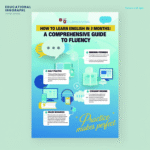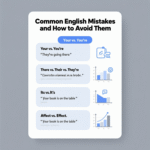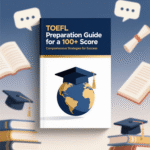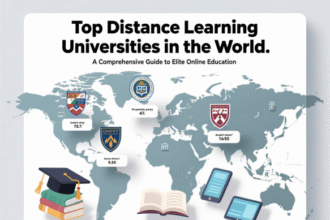Securing PhD scholarships is a critical step for aspiring doctoral candidates aiming to pursue advanced research without the burden of financial constraints. The process of applying for PhD scholarships is multifaceted, requiring strategic planning, meticulous preparation, and a deep understanding of funding landscapes. This guide provides an exhaustive roadmap to navigate the complex world of PhD scholarships, offering actionable insights to enhance your application and maximize your chances of success.
- Understanding the Importance of PhD Scholarships
- Types of PhD Scholarships Available
- Merit-Based Scholarships
- Need-Based Scholarships
- Field-Specific Scholarships
- International Scholarships
- Diversity and Inclusion Scholarships
- Step-by-Step Guide to Applying for PhD Scholarships
- Step 1: Research Available Scholarships
- Step 2: Assess Your Eligibility
- Step 3: Prepare a Strong Research Proposal
- Step 4: Gather Supporting Documents
- Step 5: Craft a Compelling Personal Statement
- Step 6: Submit Your Application
- Step 7: Prepare for Interviews
- Top PhD Scholarships to Consider
- Fulbright Scholarship
- Rhodes Scholarship
- Gates Cambridge Scholarship
- Chevening Scholarship
- National Science Foundation (NSF) Graduate Research Fellowship
- Strategies to Strengthen Your PhD Scholarship Application
- Build a Strong Academic Profile
- Network with Faculty and Peers
- Tailor Applications to Each Scholarship
- Seek Feedback and Revise
- Demonstrate Broader Impact
- Common Mistakes to Avoid in PhD Scholarship Applications
- Navigating International PhD Scholarships
- Visa and Immigration Considerations
- Cultural and Academic Adaptation
- Funding for International Students
- Financial Planning Beyond Scholarships
- Leveraging University Resources
- Maintaining Scholarship Funding
- Long-Term Benefits of PhD Scholarships
- Recommendations and Suggestions
- Frequently Asked Questions (FAQs)
Understanding the Importance of PhD Scholarships
PhD scholarships are vital for enabling students to focus on their research without financial stress. These awards, often covering tuition, living expenses, and research costs, are offered by universities, government bodies, private organizations, and foundations worldwide. The competition for these scholarships is intense, as they attract top talent globally. A well-prepared application can set you apart, ensuring your academic and professional aspirations are fully supported.
Why Pursue a PhD Scholarship?
-
Financial Freedom: Covers tuition, living expenses, and research-related costs.
-
Research Focus: Allows candidates to dedicate time to studies without part-time work.
-
Career Advancement: Enhances CV with prestigious awards, opening doors to academic and industry roles.
-
Global Opportunities: Many scholarships fund international study, fostering cross-cultural collaboration.
Types of PhD Scholarships Available
The landscape of PhD scholarships is diverse, with funding opportunities tailored to various fields, demographics, and academic goals. Understanding the types of scholarships available is crucial for identifying the best fit for your profile.
Merit-Based Scholarships
Merit-based scholarships reward academic excellence, research potential, and leadership qualities. These are highly competitive and often require a strong academic record, publications, or a compelling research proposal.
-
Examples: Fulbright Scholarship, Rhodes Scholarship, Gates Cambridge Scholarship.
-
Eligibility: Outstanding grades, research experience, and leadership skills.
-
Application Focus: Highlight academic achievements and research impact.
Need-Based Scholarships
Need-based scholarships support students with demonstrated financial need. These may require income documentation or personal statements detailing financial challenges.
-
Examples: University-specific hardship funds, government grants.
-
Eligibility: Proof of financial need, often combined with academic merit.
-
Application Focus: Transparent financial documentation and a compelling personal narrative.
Field-Specific Scholarships
These scholarships target specific disciplines, such as STEM, humanities, or social sciences, encouraging research in high-demand areas.
-
Examples: National Science Foundation (NSF) Graduate Research Fellowship, Wellcome Trust Doctoral Studentships.
-
Eligibility: Alignment with the scholarship’s research priorities.
-
Application Focus: Tailor your proposal to the funder’s mission and goals.
International Scholarships
International scholarships support students studying abroad, fostering global academic exchange. These are ideal for candidates seeking cross-cultural research opportunities.
-
Examples: Chevening Scholarship, Erasmus Mundus Joint Doctorates.
-
Eligibility: Often open to students from specific countries or regions.
-
Application Focus: Emphasize global impact and cross-cultural adaptability.
Diversity and Inclusion Scholarships
These scholarships aim to support underrepresented groups, including women, minorities, and students with disabilities, to promote equity in academia.
-
Examples: L’Oréal-UNESCO For Women in Science, Ford Foundation Fellowship.
-
Eligibility: Membership in an underrepresented group, academic merit.
-
Application Focus: Highlight personal background and contributions to diversity.
Step-by-Step Guide to Applying for PhD Scholarships
The application process for PhD scholarships requires careful planning and execution. Below is a detailed guide to streamline your efforts and create a standout application.
Step 1: Research Available Scholarships
Start by identifying scholarships that align with your academic field, career goals, and personal background. Use comprehensive databases and resources to uncover opportunities.
-
Resources:
-
University websites and financial aid offices.
-
Scholarship databases like ScholarshipPortal, FindAPhD, and ProFellow.
-
Government funding bodies (e.g., DAAD in Germany, CSC in China).
-
Professional organizations in your field.
-
-
Tips:
-
Create a spreadsheet to track deadlines, eligibility criteria, and required documents.
-
Prioritize scholarships with early deadlines or rolling applications.
-
Check for country-specific or institution-specific funding.
-
Step 2: Assess Your Eligibility
Carefully review eligibility criteria to ensure you qualify. Common requirements include:
-
Academic Qualifications: Minimum GPA, degree level, or prior research experience.
-
Field of Study: Alignment with the scholarship’s focus area.
-
Nationality/Residency: Some scholarships are restricted to specific countries.
-
Language Proficiency: Proof of language skills (e.g., TOEFL, IELTS for international students).
-
Other Criteria: Leadership experience, community involvement, or financial need.
Step 3: Prepare a Strong Research Proposal
A compelling research proposal is the cornerstone of most PhD scholarship applications. It showcases your research vision, methodology, and potential impact.
-
Key Components:
-
Title: Clear, concise, and reflective of your research focus.
-
Introduction: Outline the research problem and its significance.
-
Objectives: Define specific, measurable goals.
-
Methodology: Detail your research approach, including data collection and analysis.
-
Impact: Explain how your research contributes to the field or society.
-
Timeline: Provide a realistic schedule for project milestones.
-
-
Tips:
-
Tailor the proposal to each scholarship’s mission and priorities.
-
Use clear, jargon-free language to appeal to diverse reviewers.
-
Seek feedback from advisors or peers to refine your proposal.
-
Step 4: Gather Supporting Documents
Most PhD scholarship applications require a suite of documents to demonstrate your qualifications and readiness.
-
Common Documents:
-
Academic Transcripts: Certified copies of undergraduate and master’s degrees.
-
Letters of Recommendation: Typically 2–3 letters from professors or supervisors.
-
Curriculum Vitae (CV): Highlight academic achievements, publications, and research experience.
-
Personal Statement: A narrative detailing your academic journey, goals, and motivations.
-
Proof of Language Proficiency: Required for international scholarships.
-
Financial Documents: For need-based scholarships, include income or financial aid statements.
-
-
Tips:
-
Request recommendation letters early, providing referees with your CV and proposal.
-
Customize your CV and personal statement for each scholarship.
-
Ensure all documents are formatted consistently and free of errors.
-
Step 5: Craft a Compelling Personal Statement
Your personal statement is an opportunity to tell your story, connecting your background, aspirations, and research goals.
-
Structure:
-
Introduction: Share your academic journey and passion for your field.
-
Body: Highlight key achievements, challenges overcome, and alignment with the scholarship’s mission.
-
Conclusion: Articulate your future goals and how the scholarship will help you achieve them.
-
-
Tips:
-
Be authentic and avoid generic statements.
-
Address any gaps or weaknesses in your academic record proactively.
-
Use specific examples to illustrate your skills and experiences.
-
Step 6: Submit Your Application
Before submitting, double-check all requirements and deadlines. Incomplete or late applications are often disqualified.
-
Checklist:
-
Verify all required documents are included.
-
Ensure application forms are fully completed.
-
Submit through the correct portal or email, following instructions precisely.
-
Keep copies of all submitted materials for your records.
-
-
Tips:
-
Submit well before the deadline to avoid technical issues.
-
Confirm receipt of your application if possible.
-
Follow up politely if you don’t hear back within the expected timeframe.
-
Step 7: Prepare for Interviews
Some scholarships require interviews to assess your fit and commitment. Preparation is key to making a strong impression.
-
Common Questions:
-
Why do you want this scholarship?
-
How does your research align with our mission?
-
What are your long-term career goals?
-
How will you contribute to the academic community?
-
-
Tips:
-
Practice concise, confident responses with a mentor or peer.
-
Research the scholarship provider’s goals and values.
-
Dress professionally and maintain a positive demeanor.
-
Top PhD Scholarships to Consider
Below is a curated list of prestigious PhD scholarships to explore, each with unique eligibility criteria and benefits.
Fulbright Scholarship
-
Overview: Supports international students pursuing doctoral studies in the U.S., emphasizing cultural exchange.
-
Eligibility: Open to students from over 160 countries, with strong academic records.
-
Benefits: Covers tuition, living expenses, and travel costs.
-
Application Tips: Highlight cross-cultural collaboration and global impact.
Rhodes Scholarship
-
Overview: One of the oldest and most prestigious scholarships, funding study at the University of Oxford.
-
Eligibility: Exceptional academic and leadership qualities, typically for students under 25.
-
Benefits: Full funding for tuition, living expenses, and travel.
-
Application Tips: Emphasize leadership and societal contributions.
Gates Cambridge Scholarship
-
Overview: Funds outstanding international students at the University of Cambridge.
-
Eligibility: Academic excellence and commitment to improving lives.
-
Benefits: Covers tuition, living stipend, and research costs.
-
Application Tips: Focus on your potential to create global impact.
Chevening Scholarship
-
Overview: UK government-funded scholarship for future leaders studying in the UK.
-
Eligibility: Open to students from Chevening-eligible countries with leadership potential.
-
Benefits: Full funding for one-year master’s or PhD programs.
-
Application Tips: Highlight professional achievements and networking skills.
National Science Foundation (NSF) Graduate Research Fellowship
-
Overview: Supports STEM students in the U.S. with significant research potential.
-
Eligibility: U.S. citizens or permanent residents in STEM fields.
-
Benefits: Three years of funding, including a stipend and tuition support.
-
Application Tips: Emphasize innovative research ideas and broader impacts.
Strategies to Strengthen Your PhD Scholarship Application
To stand out in a competitive applicant pool, adopt these advanced strategies to enhance your application.
Build a Strong Academic Profile
-
Publish research papers or present at conferences to demonstrate expertise.
-
Engage in relevant research projects or internships.
-
Maintain a high GPA and seek academic awards.
Network with Faculty and Peers
-
Connect with professors who can write strong recommendation letters.
-
Join academic communities or professional organizations in your field.
-
Attend workshops or seminars to build relationships with potential mentors.
Tailor Applications to Each Scholarship
-
Research the scholarship’s mission and values thoroughly.
-
Align your research proposal and personal statement with the funder’s priorities.
-
Avoid generic applications; customize every component.
Seek Feedback and Revise
-
Share drafts with advisors, peers, or writing centers for constructive feedback.
-
Revise multiple times to ensure clarity, coherence, and professionalism.
-
Proofread meticulously to eliminate errors.
Demonstrate Broader Impact
-
Highlight how your research addresses societal challenges or advances knowledge.
-
Include community service or outreach activities to show well-roundedness.
-
Articulate long-term goals that align with the scholarship’s objectives.
Common Mistakes to Avoid in PhD Scholarship Applications
Even strong candidates can falter due to avoidable errors. Steer clear of these pitfalls to maximize your chances.
-
Incomplete Applications: Missing documents or unanswered questions lead to automatic rejection.
-
Generic Statements: Failing to tailor applications to specific scholarships weakens impact.
-
Poor Proofreading: Spelling or grammatical errors signal carelessness.
-
Weak Research Proposals: Vague or unrealistic proposals undermine credibility.
-
Late Submissions: Missing deadlines results in disqualification, no exceptions.
Navigating International PhD Scholarships
International PhD scholarships offer unique opportunities but come with additional challenges, such as visa requirements and cultural adjustments.
Visa and Immigration Considerations
-
Research visa requirements for your destination country early.
-
Secure necessary documentation, such as acceptance letters or financial guarantees.
-
Contact the university’s international office for guidance.
Cultural and Academic Adaptation
-
Familiarize yourself with the host country’s academic culture and expectations.
-
Build a support network through international student organizations.
-
Prepare for language barriers by improving proficiency before departure.
Funding for International Students
-
Explore scholarships specifically for international students, like DAAD or Australia Awards.
-
Check if your home country offers funding for overseas study.
-
Consider university-specific international student grants.
Financial Planning Beyond Scholarships
While PhD scholarships cover many costs, additional financial planning ensures stability throughout your program.
-
Budgeting: Create a detailed budget for living expenses, travel, and research costs.
-
Supplementary Funding: Apply for smaller grants, fellowships, or teaching assistantships.
-
Emergency Funds: Maintain savings for unexpected expenses.
-
Tax Implications: Understand tax obligations for scholarship stipends in your country.
Leveraging University Resources
Universities often provide resources to help students secure PhD scholarships and succeed in their applications.
-
Financial Aid Offices: Offer guidance on scholarships and application processes.
-
Career Centers: Provide CV workshops, mock interviews, and proposal reviews.
-
Research Offices: Connect students with funding opportunities and mentors.
-
Writing Centers: Assist with polishing personal statements and proposals.
Maintaining Scholarship Funding
Once awarded a PhD scholarship, maintaining funding requires meeting ongoing requirements.
-
Academic Performance: Maintain a minimum GPA or progress milestones.
-
Reporting: Submit regular progress reports or presentations to funders.
-
Engagement: Participate in scholarship-related events or community activities.
-
Renewal: Apply for renewals if funding is not guaranteed for the entire program.
Long-Term Benefits of PhD Scholarships
Securing a PhD scholarship offers benefits beyond financial support, shaping your academic and professional trajectory.
-
Networking: Connect with scholars, researchers, and industry leaders.
-
Career Opportunities: Prestigious scholarships enhance job prospects in academia and beyond.
-
Research Impact: Access to resources enables high-quality, impactful research.
-
Personal Growth: Develop resilience, time management, and leadership skills.
Recommendations and Suggestions
To maximize your success in securing PhD scholarships, we recommend:
-
Start early: Begin researching and preparing applications at least 12–18 months in advance.
-
Diversify applications: Apply to multiple scholarships to increase your chances.
-
Seek mentorship: Work with advisors or past recipients for guidance.
-
Stay organized: Use tools like spreadsheets or apps to track deadlines and requirements.
-
Practice resilience: Rejection is common; refine and resubmit applications as needed.
Frequently Asked Questions (FAQs)
-
What are PhD scholarships?
PhD scholarships are financial awards to support doctoral students, covering tuition, living expenses, or research costs. -
Who is eligible for PhD scholarships?
Eligibility varies by scholarship but often includes academic merit, research potential, financial need, or specific demographic criteria. -
How do I find PhD scholarships?
Use university websites, scholarship databases, government portals, and professional organizations to identify opportunities. -
What documents are needed for PhD scholarship applications?
Common documents include transcripts, CV, recommendation letters, personal statement, research proposal, and language proficiency proof. -
How competitive are PhD scholarships?
Scholarships are highly competitive, especially for prestigious or fully funded programs, requiring standout applications. -
Can international students apply for PhD scholarships?
Yes, many scholarships are designed for international students, such as Fulbright, Chevening, or DAAD. -
How long does it take to prepare a scholarship application?
Preparation can take 3–6 months, including research, document gathering, and proposal writing. -
What makes a strong research proposal?
A strong proposal is clear, feasible, impactful, and aligned with the scholarship’s goals. -
Can I apply for multiple PhD scholarships?
Yes, applying to multiple scholarships increases your chances, but ensure each application is tailored. -
What if I don’t meet all eligibility criteria?
Check for alternative scholarships or contact the provider to clarify flexibility in criteria. -
How important are recommendation letters?
They are critical, as they validate your academic and research capabilities from credible sources. -
Do PhD scholarships cover all expenses?
Coverage varies; some are fully funded, while others cover partial costs like tuition or stipends. -
How do I prepare for a scholarship interview?
Research the scholarship, practice common questions, and articulate your goals clearly. -
What happens if I miss a scholarship deadline?
Late applications are typically not accepted; focus on scholarships with later or rolling deadlines. -
Can I reapply for a scholarship if rejected?
Yes, many scholarships allow reapplication in subsequent cycles; use feedback to improve.













